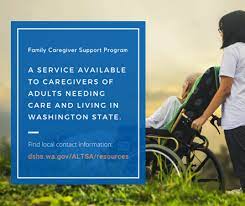
There are many reasons why someone might need the assistance of a dementia care program. The program can provide 24-hour supervision to someone with advanced dementia. A caregiver can also assist the person in daily activities like bathing and dressing. In later stages, confusion and aggression may occur. This condition can cause significant difficulties for the patient as well as their loved ones. This article will address the benefits and costs associated with a dementia care program.
Programs for Alzheimer's Care
Medicaid Waivers are government-funded health care programs that allow individuals with certain disabilities to receive care outside of a nursing home. They may receive care at home, in the homes of relatives, in an adult foster care home, or in an assisted living residence. Individuals must meet certain financial criteria and have special functional limitations to be eligible for Medicaid benefits. Many patients with Alzheimer's disease are low-income and do not work, and Medicaid benefits can help offset the cost of care.
Respite care is a way for caregivers to take a break from caring and supporting a loved one suffering from Alzheimer's disease. The service can be provided at the patient's home, in a medical facility or at an adult daycare center. The respite service can be for as little as a few hours up to several weeks. The respite service can be used by caregivers for as long or as needed. Respite care is usually charged per day or per week and most insurance companies do not cover them. Families are responsible for paying the entire cost of the services.

Resources for family caregivers
Although it is easy for family caregivers and loved ones to feel overwhelmed when caring for someone with dementia or their loved ones, they don't have all the answers. Texas offers many resources for family caregivers. The National Institute on Aging has helpful tips for family caregivers. They also have information on dementia and its symptoms. The National Institute on Aging also provides information about dementia treatment including clinical trials and other research findings.
As a resource, support groups are also a valuable option. These support groups are a safe and supportive place for caregivers to vent their emotions and seek out help. Also, caregivers may benefit from a caregiver support group that allows them to get advice and help from others in similar situations. AARP has a guide that will help family caregivers locate resources and find a program for dementia care. Talking to a professional is a good idea if you are trying to decide whether or no to enroll your loved-one in a care program for dementia.
Prices
Although the cost of dementia care can be high, it is possible to pay for the necessary medical care. Medication, doctor's visits, and treatment of any accompanying medical conditions are all necessary for preserving a good quality of life. Many seniors can continue living independent and comfortable lives many years after being diagnosed with dementia. Medicaid covers nursing home care but some families may not be able to afford it. There are many ways to pay for dementia care. These include supplemental insurance, nonMedicaid assistance programs and relocation to a less-expensive state.
The cost of dementia care programs, even though the disease is incurable is still significantly higher than that of other chronic illnesses. In 2010, the average Alzheimer’s sufferer paid $41,000. This amount is expected increase by nearly $511 million by 2040. These costs are largely out-of-pocket. It is therefore important to understand the payer options. The patient's care will be affected by the budget of the facility.

Health care system impact
A dementia care program can help improve the quality or life of individuals living with dementia. These programs are becoming more popular due to their cost-effectiveness as well as personalized care. Significant federal funding has been made available to assist medical students. Medicare's graduate medical education program focuses on hospital-based training and identifies dementia as a high-priority area of shortage. In order to meet the rising demand for dementia-care services, funding programs should be expanded beyond hospitals.
The research team studied 38 dementia policy options. Based on their findings, the research team identified 25 priority policy options that could improve the quality of care, reduce costs, and increase access to dementia-specific LTSS. These policy options address many of the problems that caregivers and patients face including stigma, limited access to care, and heavy reliance upon outside services. These policy options address the health-care system's challenges. They include the need to integrate dementia care programs and improve community resources.